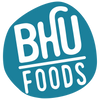
Common Food Cravings and What Your Body May be Trying to Tell You
If you are prone to food cravings throughout the day, especially after a tough night with little shut-eye or around that time of the month when your hormones are off balanced, then listen up. There is reasoning behind those cravings, and based on the type of food you covet, the real need or area with deficiency may differ.
Yet, it’s hard to really know the mechanism behind cravings and why you might get a desire for a hearty steak one night or a salty chip another. If you’re unsure why these cravings pop up and what they really mean for your body’s needs, then be rest assured—we too wondered the same and dug a bit deeper.
Here, we’ve pinpointed a few common, classic cravings and what their presence signifies, in terms of what your body actually needs in the diet. (A hint, it’s generally not the food you’re craving itself….).
A Salty Craving
If you have a need for a bag of salty, crispy potato chips or a cheesy slice of pizza—or even something on the healthier end like olives, cottage cheese or salty feta—then it could mean your body is actually thirsty, with hunger masked as its disguise.
And what’s more, beyond just needing some cool water to chug, your body’s desire for a salty snack might actually mean it’s also depleted and low in electrolytes, like potassium, sodium, and magnesium. This is especially common if you’ve been out in the heat and sun all day without many fluids or if you have just finished up a sweaty workout, since these electrolytes are lost rapidly through sweating.
You can drink coconut water, which has electrolytes, or pair your water with a banana, which has fast-acting potassium. Or go for a low-sugar sports drink or gel or liquid to add to your water glass.
A Sweet Craving
A craving for sweets and sugar may actually mean you’re feeling a bit down and need something to boost your mood and those feel-good hormones known as endorphins. And if you crave chocolate in particular, it could mean you are low in iron and need to incorporate more iron dense foods into your diet.
Most iron-rich foods happen to be animal based (red meat, poultry, turkey or fish, for example); however, if you’re plant-based or vegan, you’ll need to find iron elsewhere. You run the risk of anemia, so to keep your red blood cells healthy and iron content high,
The good news is you can still get a nice dose of iron in green cruciferous vegetables such as broccoli and Brussels sprouts, as well as in leafy greens like spinach and kale. You can also eat tofu, other vegan “meat” alternatives, or beans and legumes as well. Lentils, black beans, chickpeas, broad beans and mung beans are all great examples. And if you are still worried about deficiency when on a vegan diet, you can supplement with iron after discussing dosages with your physician or dietitian.
A Craving for Protein (Red Meat in Particular)
If you keep craving a thick, meaty beef burger or steak and fries, it could also signify a need for protein, as well as micronutrients like zinc and iron, as well. Despite zinc and iron being more readily available in and absorbed from animal meat, eating red meat isn’t always the answer.
For one, you could be vegan or plant-based and cannot eat red meat, and secondly, even if you are not, keeping red meat in moderate doses is part of a healthy, balanced diet.
So, finding other sources of plant foods or other leaner sources of animal meat (if your diet is animal-friendly) to keep on hand as pantry staples for whenever your zinc, iron and protein stores dip too low will help you keep energy stable and avoid any long-term effects of macro- and micro-nutrient deficiencies.
Try a vegan alternative to classic red-meat based meals, such as whole wheat pasta or zoodles with meatballs or a juicy burger on a whole grain bun or inside a lettuce wrap. You can find many plant based “burger patties” that are high in protein, iron and zinc but meatless, since they usually consist of beans, legumes or soy protein instead.
Dress it up as you would with the traditional red meat version and keep high protein snacks on hand to nosh on throughout the day, which will keep your energy and metabolism up. And while zinc is often most found in seafood and animal protein too, you can find zinc in nuts and seeds, beans and legumes, and soy, as well as through daily supplementation for that extra boost.

Carbs (Bread, Bread and More Bread)
Most people aren’t strangers to that pesky and all-too-common carb craving for classic comfort foods like bread and butter, cheese pizza and pasta, or mac n’ cheese. If you can’t seem to back away from the carb-dense, bready dishes it is likely due to how well you slept the previous night. And if on a routine basis, how well you sleep in general.
A hint? If you’re clocking in fewer than seven hours of shut-eye a night, it’s time to power down sooner and shut off those electronics, finds ways to reduce disruptions throughout the night or adjust your schedule. Getting between 7-9 hours of sleep a night if recommended for adequate rest and recovery come morning, as well as for lowering risk of disease and weight gain, among other potential side effects.











